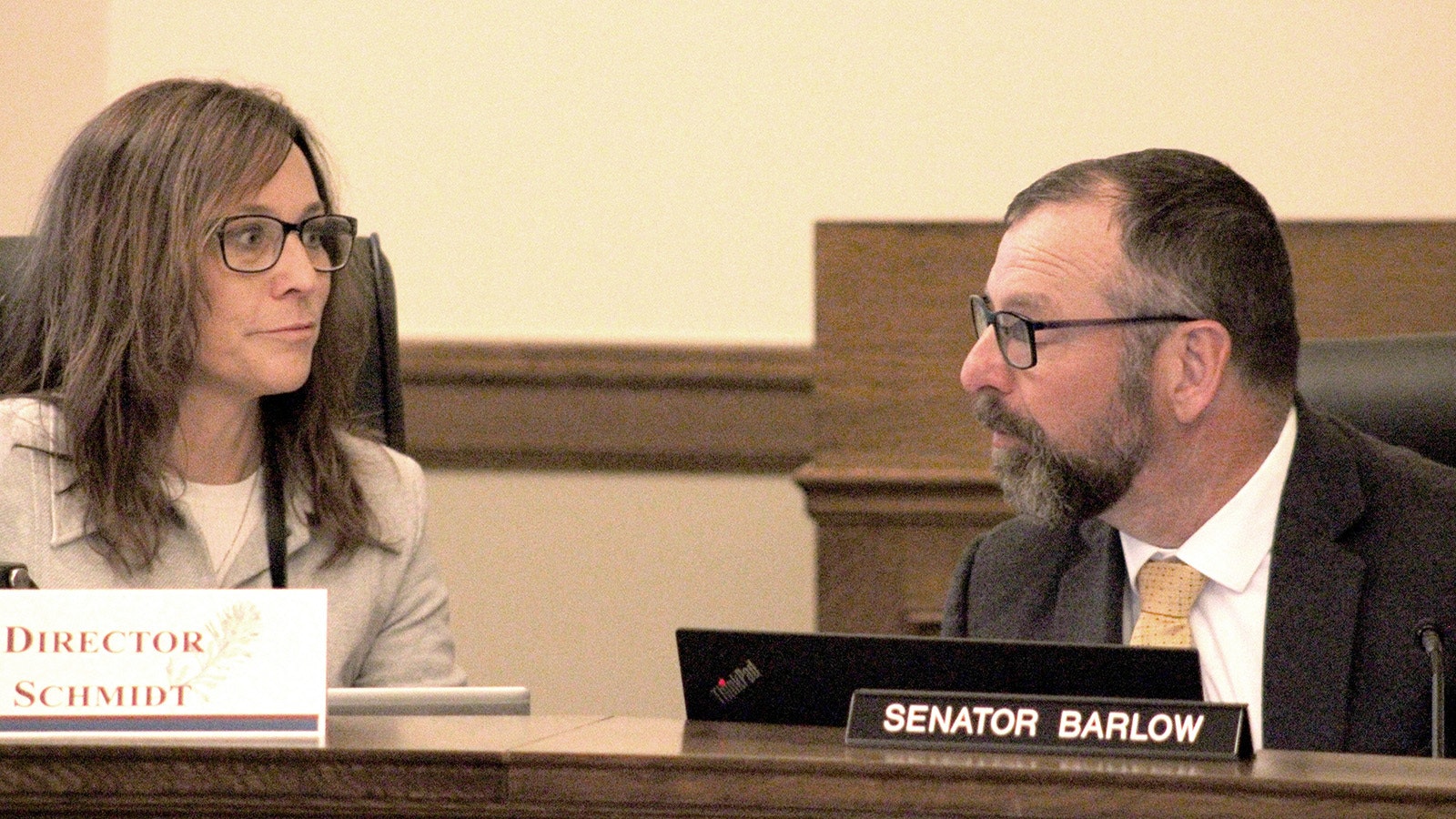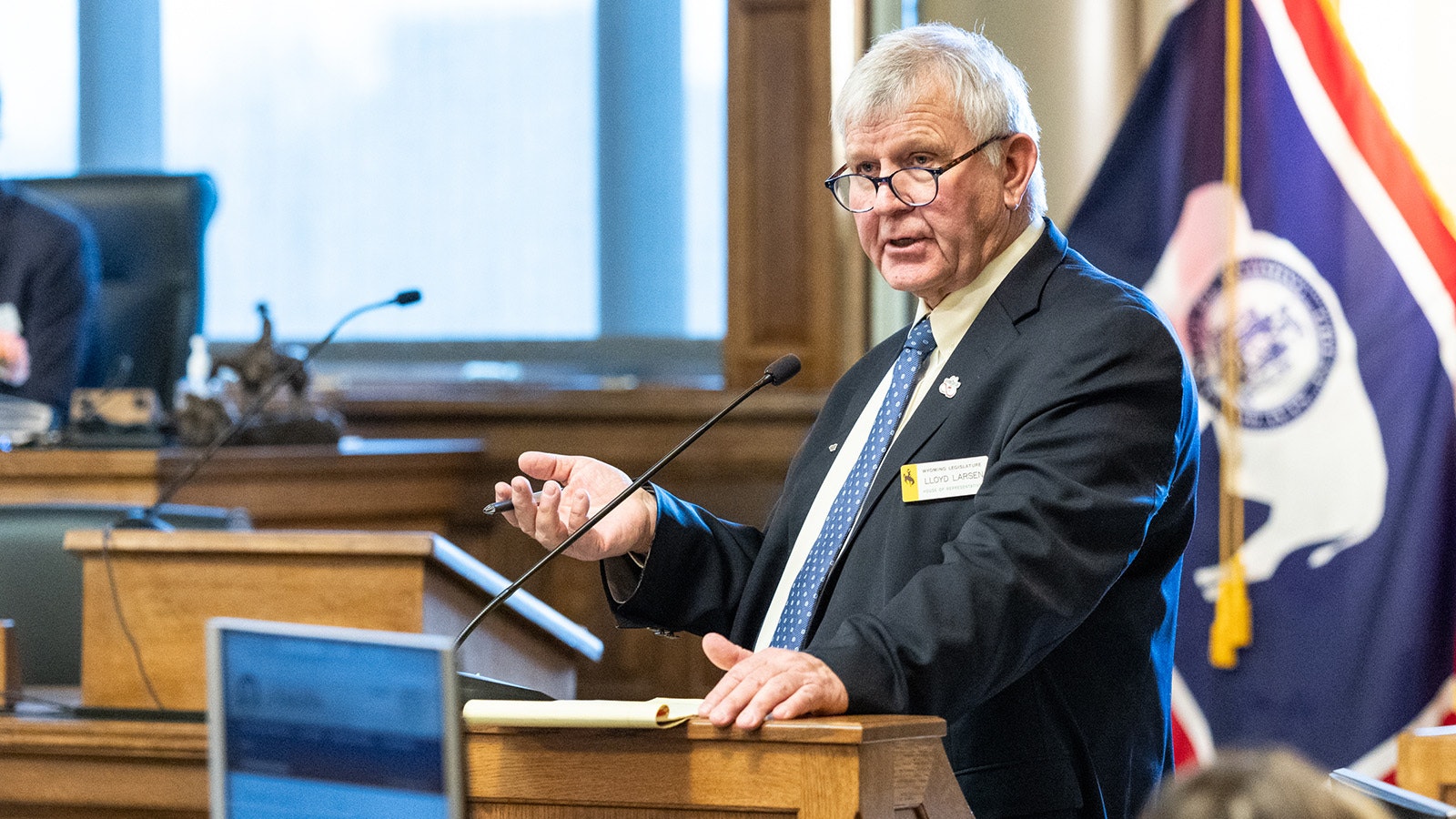The home was littered with old phone bills and other papers, some dating back to 1988.
The elderly woman living there was mentally sharp, AARP Wyoming State President Tom Lacock told the Wyoming Legislature’s Mental Health Task Force in its inaugural meeting on Friday, but she couldn’t physically manage the squalor that had developed around her. Where does the government step in for a mentally competent person with a diminishing physical ability to care for herself?
“It’s a question where, I don’t think we’re looking to remove her, but what can we do to maintain aging but keep her in the home,” he later told Cowboy State Daily. “It may be a struggle."
It’s a dilemma for many community service providers in Wyoming, Lacock said.
In this case, the woman was reported to the Department of Family Services with her permission, but there are many times when it’s not so clear how situations with vulnerable adults should be dealt with, or better yet prevented.
A vulnerable adult in Wyoming can be anyone age 18 or older who is in a situation where they cannot properly take care of themselves or their property without assistance because of advanced age, or physical or mental disability. Most of people who fall into this category in Wyoming are age 60 and older.
In cases like the older woman, the concern has to be the person’s safety, DFS Director Korin Schmidt said, adding that vulnerable adults encompass a wide range of ages and life situations.
“Not necessarily (if someone is) a hoarder, but certainly living in an environment that’s not safe,” Schmidt said. “While I think we have a tendency to think of maybe the stereotypical little old lady in a wheelchair, we’re really talking about, across the board, people — for whatever reason — have a difficult time meeting their basic needs.”
Silently Suffering
Lacock worries that for some people, situations like these may not be handled as smoothly. The only reason he discovered the woman was because she contacted AARP about a paper shredding event the organization was holding.
“How do we educate people on what’s out there?” Lacock asked. “People may fear what they think they’ll stand to lose, if they report what they think is admitting defeat. Until people get that one-on-one help you don’t really know.”
One of the challenges the Wyoming Legislature’s newly formed Mental Health and Vulnerable Adults Task Force is attempting to tackle is how to improve the way the state identifies and handles its vulnerable adults.

Sticky Wicket
One of the main obstacles to taking effective action to help vulnerable adults is they can’t be treated the same way as abused or neglected children,” Schmidt told the Task Force on Friday morning.
Although there is a mechanism to bring in mental health services for adults, the state often lacks an avenue to provide custody or direct in-home care.
“It really is much wider,” she said. “There are legal issues, there are competency issues, there are funding issues, there are organizational issues about what we can do for these vulnerable adults.”
Schmidt also said the state cannot afford to house these people, so it must rely on local organizations to help provide infrastructure and other assistance.
The Wyoming Guardianship Corp. provides private guardianship services where the state can’t fill gaps, but this also is limited by staffing issues, said Elisa Butler, state court administrator for the Wyoming Supreme Court.
“That guardianship, having somebody who can help and problem solve with that adult is important,” Schmidt said.
Can Get Tricky
Ultimately, Schmidt said, DFS wants to keep as many people living in their homes as possible.
The DFS Adult Protective Services program provides case management services and support to vulnerable adults across the state through local field offices.
DFS has six employees statewide working in the Adult Protective Services with an annual budget of $80,000.
“I think that alone highlights some of the challenges we have ahead,” Schmidt said.
What also makes things tricky, Schmidt said, is that vulnerable adults don’t always want help. Even if a home is trash and vermin-infested, the resident may not be concerned about it.
“This is sticky, and the reason why it’s sticky is because just like with children, we want people to live a certain life,” she said. “And with adults, they get to pick that life. And while it doesn’t necessarily conform to what we would think is appropriate and adequate, in their mind it is.”
But if adults are identified as being a risk to themselves, they can be put into custody on a Title 25 mental health hold.
What Happens?
When a case of a vulnerable adult is reported, DFS will visit the people and assess the risks. Staff will then speak to the person about how to best be helped.
There will be enhanced scrutiny made if allegations are made that someone is causing harm to the vulnerable adult, whether through lack of care or exploitation. Schmidt said most of these cases involve family caretakers.
DFS will investigate the allegations and substantiate or unsubstantiate the claims based on a preponderance of evidence.
State Rep. Lloyd Larsen, R-Lander, said he wants the task force to determine a clear trail of options for DFS employees and determine if they need more funding to handle vulnerable adults.
Decline In Incidents
Although the total number of Adult Protective Services reports made to DFS jumped up in 2022, total reports of exploitation, abuse and neglect have all declined since 2018.
Schmidt credited the decline to the COVID-19 pandemic and that reporting is returning to normal now that the pandemic has ended.
Prevention efforts are another aspect Schmidt said her department constantly works on, another statistic that grew substantially in 2022.
DFS received around $1.8 million in total federal funding in COVID related support for vulnerable adults, an age demographic typically most affected by the virus. But Schmidt said most of this funding went towards transportation services.
Schmidt told the Task Force more conversation also needs to take place regarding what is the legal definition of a vulnerable adult. There has been a bill drafted for next year’s legislature that would do exactly that.
Proposed Bills
The effort to better handle the state’s vulnerable adults has been bubbling up in the Legislature since at least 2016. In 2017, former Gov. Matt Mead assembled a Vulnerable Adults Task Force, which developed six recommendations to the Legislature to move forward on the issue.
Only one of the recommendations was addressed in law, a bill related to the state’s power of attorney laws. A bill was made to strengthen Adult Protective Services in the state in 2018, but it was defeated. Another bill that did pass into law excluded weekends and holidays from the state’s 72-hour rule on emergency protective services and gave the option to extend emergency orders by up to 30 days.
Although it wasn’t addressed by the old Task Force, a bill was passed in the 2023 legislative session making a charge for financial exploitation of vulnerable adults.
The new Task Force briefly discussed draft bills for the 2024 Legislature that would attempt to address some of topics suggested by the old task force in various ways.
These include:
· Clarifying the definition of vulnerable adult.
· Adopting a civil cause of action for vulnerable abuse.
· Extending time for emergency protective services from 72 hours to 14 days.
· Strengthen the reporting requirements of vulnerable adults.





